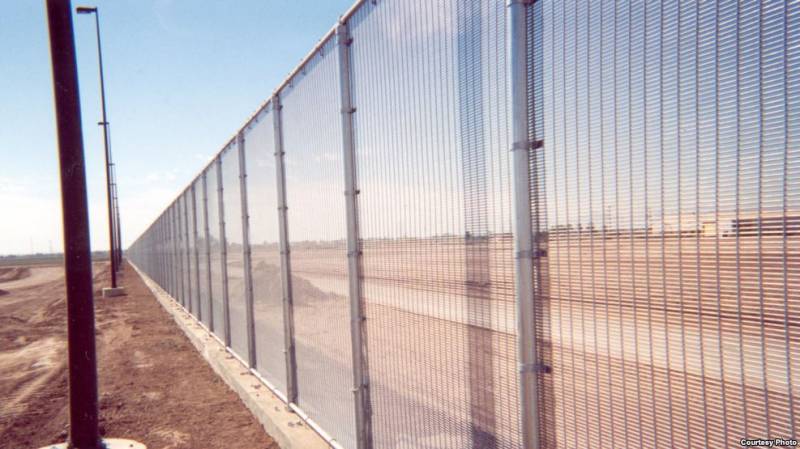Washington: A manufacturing company’s chief has claimed that skills and technology it developed making lobster traps could help save money on US Trump's controversial plan to build a wall along the US-Mexico border, Voice of America reported.
Riverdale Mills' super-tough steel fence already guards 43 kilometers of the border, and the company says its technology has proven to be a cost-effective way to secure airports, prisons and nuclear facilities.
The small firm is based in Northbridge, Massachusetts, and CEO Jim Knott says his company came up with a much better way to make lobster traps. The metal mesh is assembled on huge automated machines that weld many joints at once. The mesh can be made of different sizes of steel, with different size openings for different applications.
The mesh is run through a huge vat of molten zinc to protect the product from rust. For lobster traps and other marine applications, the product gets an additional coating of special plant-based plastics that protect the zinc. The plastic formula is a trade secret. Lobster traps have to be sturdy, effective and affordable, and Knott says lessons from making them improved the design and production of mesh for other applications.
For security fences, the mesh openings can be made too small to allow people to get a grip with their fingers or to allow a cutter to work effectively. Knott says, "It's difficult to climb, it's difficult to cut — I think it just makes more sense than a concrete wall, or a bollard wall, or an expanded metal wall."
Riverdale Mills says mesh openings in fencing can be made too small to allow people to get a grip with their fingers or to allow a cutter to work effectively.
Riverdale Mills says mesh openings in fencing can be made too small to allow people to get a grip with their fingers or to allow a cutter to work effectively.


